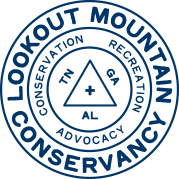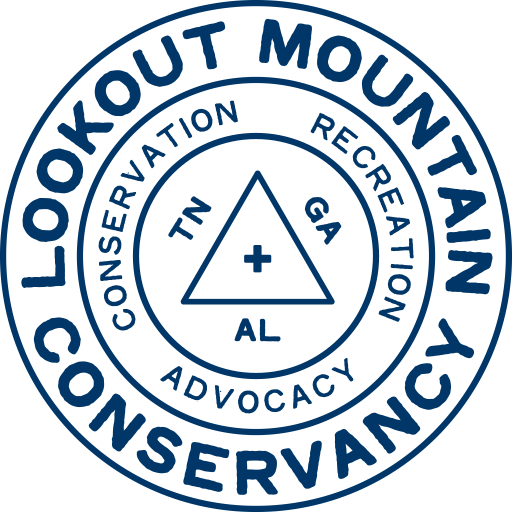What's New
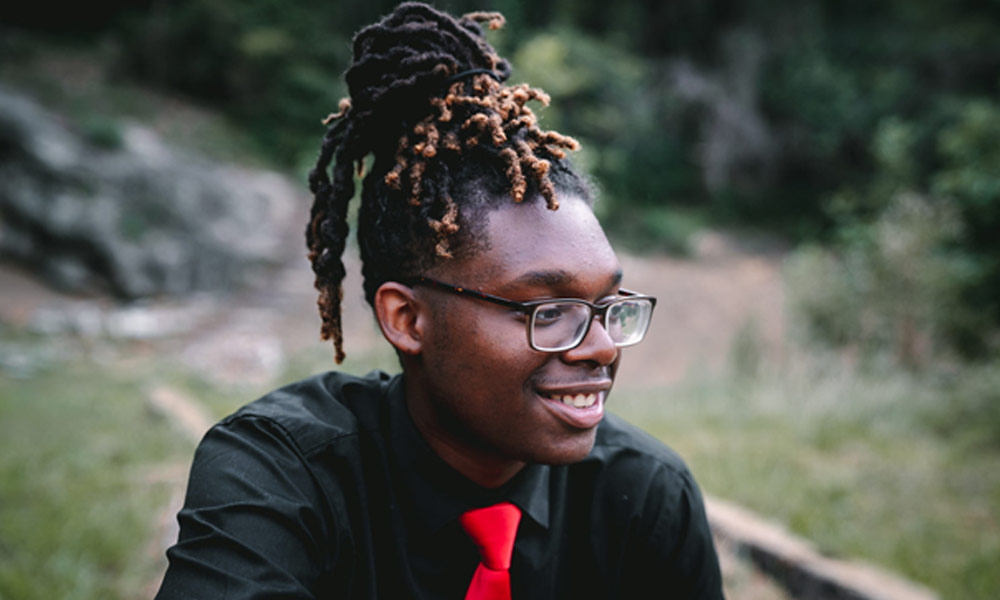
My mom works very hard and isn’t able to be around a lot so oftentimes I turned to my brother who is my best friend, my mentor, and the rock in my life. When I was little, I used to talk to him about life and about what was happening in our community. We’d talk about the situations that people found themselves in.
We’d talk about how easy it is to assume you know what’s going on, when you don’t, like how people become homeless—or what makes someone successful.
We’d talk about what success meant to us, how to grapple with life, and to always to expect the unexpected.
When I was twelve, my brother left for college. After that I had to figure out a lot of things on my own.
I didn’t talk much but I watched what others were doing and saying, I tried to do what I could to learn and grow, even when people weren’t always kind. It was lonely sometimes. Yet throughout it all, my brother’s insights stayed with me: You just never know what people are going through and what it will take to create a positive place for them to feel safe, appreciated, and grow.
People aren’t going to expect you to bring the best out of them.
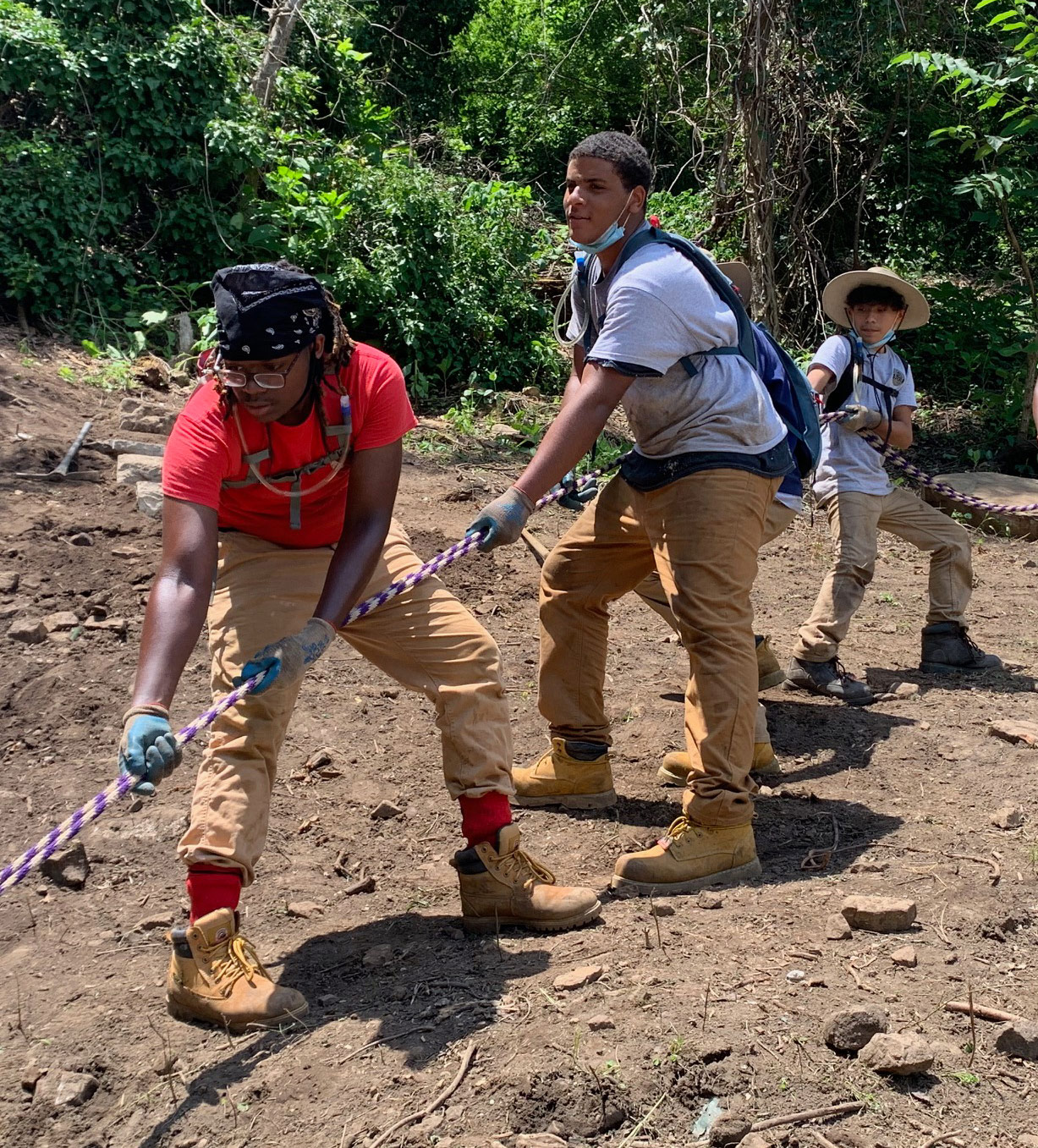
Kobe working together with new interns to set a heavy limestone step in the bouldering park.
A new family
That was one of the things that drew me to the Lookout Mountain Conservancy’s leadership program. I wanted to make a difference and to help others and I wanted to grow as a person. I also needed a job. I was a sophomore in high school and there weren’t a lot of options for jobs that invest in you when you’re that age.
Getting into the program isn’t a given; you have to volunteer before you are accepted to make sure you understand what’s expected—including your attitude and commitment to learning.
I had expected it to be a challenge because I had heard stories from other interns about the hard work and dealing with snakes, ticks, poison ivy and the heat. But I had also heard that it was a place where you became like a family and people believed in you.
What I didn’t expect was the gratitude from the community—or how it would allow me to see the positive in people and meet them where they are.
When I found my voice
When I was accepted into the program I was often in my own bubble, staying pretty quiet and observing the world around me. That’s OK, here on the Mountain, for part of the time—but we are also expected to communicate to others as part of a team.
And that’s not easy for a lot of us, including me.
Over the past year, and now this fall, every week, or even almost every day during the summer, we discussed challenges on the Mountain. We learned how to work as a team; how to check in with people; and how to motivate each other to work when it was crazy hot or something is taking a really long time.
Being somewhat shy, I dreaded having to lead the team meetings or explain to volunteers, or trail visitors, what we were doing and how we needed their support.
But along the way, I found out something I actually had known for a long time, something my brother and I talked about when I was little.
You have to see the good in people, you can’t assume you know what they are going through, and for many, a little support and encouragement can go a long way. The teamwork, and different strategies to find ways to connect with other people, is a key part of bringing us together to both transform the Mountain, but also our own lives.
My brother’s words are still with me
Now, as a senior, I’m also working another job—and juggling school. I have to be focused. I can’t allow everyday distractions to pull me off course. Covid-19 makes it even harder because we all have to be careful, respectful, and stay safe.
Because of my health, my mom, my teachers, my Conservancy community and my other job, I’m thankful. It’s been hard, no doubt about it. Between school, my other job, the Conservancy job I’m working seven days a week. But I still feel blessed.
I’m thankful for those conversations with my brother way back when, and the Conservancy program which has helped to give me the skills to lead my other workmates and help create a positive place to work.
I know that not everyone is going to have a good day. Yet I find meeting people where they are, and finding the common ground and goals we have as the organization, can allow us to create a path for mutual benefits. I encourage people to empathize; you can’t make assumptions. You have to push through your own discomfort to find ways to connect and build that relationship of trust.
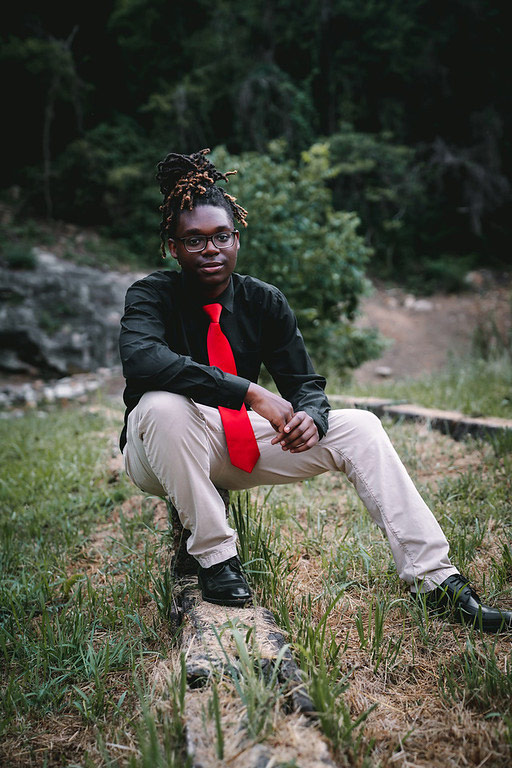
Kobe posing for his senior portraits out on the Mountain.
I’ve realized the power of being positive.
That doesn’t mean looking the other way, or pretending things aren’t hard or stacked against you. Instead, it means providing a sense of being appreciated—and showing appreciation.
I’ve realized that mentoring others, and seeing the good in people, helps me, and them. I’m a better person because of it.
Change starts every day with meeting people where they are and believing in them. The acts of kindness, compassion, listening, and respect for who they are make them feel valued; for some alone is a change in their lives.
I now see the future I want to be. If all goes well, and I can line up the funding, I hope to attend Berea College or Middle Tennessee University to study business, develop the skills to help others, and maybe run a nonprofit where I can continue to foster a community where we are all in this together.
I wouldn’t be where I am today without the Conservancy’s Leadership Program. I had the instinct to give, that’s true. But my circumstances meant that I hadn’t had the chance to explore and shine. Now my hope is that by attending college, and focusing on business management, I too can someday lead a program like this and help support and motivate others to take a step towards what, and where, they want to be.
-Kobe P.
